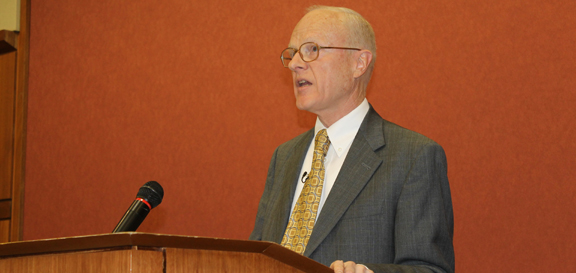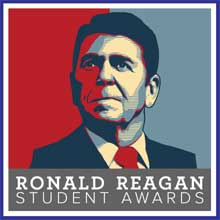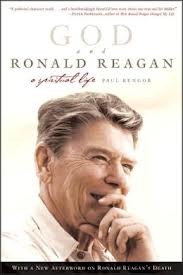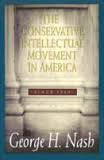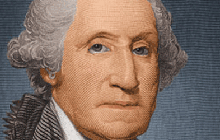Ronald Reagan. Just the name can evoke strong feelings of various kinds. Twenty five years after he left office, America is still discussing his place in our nation’s history. In this session, conservative historian, Dr. George H. Nash, continues that discussion by surveying the man who started out as a card carrying liberal from Hollywood but found his way to conservatism through a monumental journey. A gifted leader, orator, and humorist, Ronald Reagan was known as the “Great Communicator” and personified the conservative fusion of economic, social, and national security conservatism. Not only did he save the American economy, but won the Cold War and made Americans proud to be American again. Join us as we discuss this historical revolution that redefined American governance and propelled conservatism as a legitimate governing movement.
“Conservatism 101 is very well done and a creative way to reach the next generation on some of the major themes of conservatism.” ~Annette Kirk (President, Russell Kirk Center for Cultural Renewal)
The Presenter
Dr. George H. Nash, a Senior Fellow at The Russell Kirk Center, is an independent scholar, historian, and lecturer, with specialties in twentieth century American political and intellectual history. He speaks and writes frequently about the history and present direction of American conservatism, the life of Herbert Hoover, the legacy of Ronald Reagan, the education of the Founding Fathers, and other subjects. He is best known for The Conservative Intellectual Movement in America Since 1945 which first appeared in 1976 and has been twice revised and expanded. More recently, Dr. Nash has written Reappraising the Right: The Past and Future of American Conservatism.
His writings have appeared in the American Spectator, Claremont Review of Books, Intercollegiate Review, Modern Age, National Review, New York Times Book Review, Policy Review, University Bookman, Wall Street Journal, and many other publications. He has lectured on C-SPAN, at the Library of Congress; the National Archives; the Herbert Hoover, John F. Kennedy, and Lyndon Johnson presidential libraries; the Gerald R. Ford Presidential Museum; the Hoover Institution; the Heritage Foundation; the McConnell Center; and at various universities and conferences in the United States and Europe.
(Dr. Nash’s lecture is adapted from his essay ‘Ronald Reagan’s Legacy and American Conservatism,” Charles W. Dunn, ED., The Enduring Reagan (Copyright 2009 by the University Press of Kentucky.)
Version 1.0



